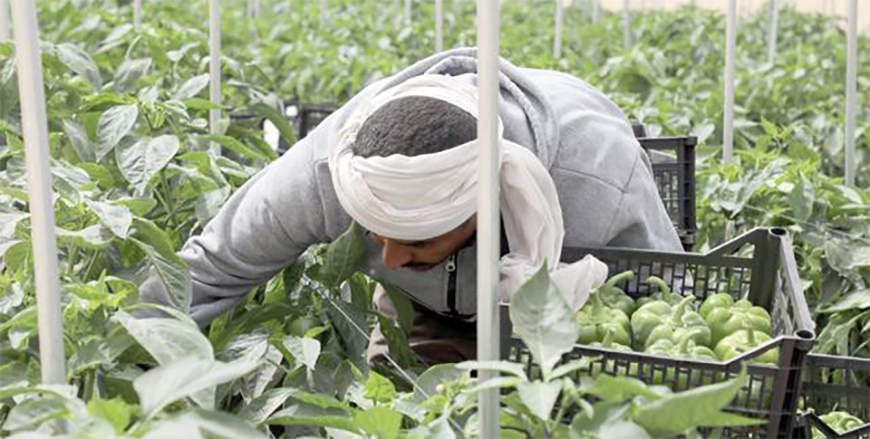You are here
Jordan, WFP agreement to provide 'interest-free' loans to farmers, agri-projects — ACC
By JT - Apr 13,2025 - Last updated at Apr 13,2025

The Agricultural Credit Corporation says WFP agreement to provide 'interest-free' loans to Jordan's small- and large-scale farmers to confront climate change challenges (JT file)
AMMAN — Director-General of the Agricultural Credit Corporation (ACC) Mohammad Dogan said that the ACC agreement signed with the World Food Programme (WFP), which was recently approved by the Council of Ministers, represents a "qualitative" step in supporting Jordan's small- and large-scale farmers to confront climate change challenges.
On its goals, Dogan said that this step aims to finance projects that integrate modern agricultural practices that contribute to achieving Jordan's food security and developing production chains, according to the Jordan News Agency, Petra.
Dogan added that the agreement, which aims to support and develop climate-resilient agriculture with a total value of JD3.5 million, seeks to enhance resilience of Jordan's farmers by providing modern agricultural practices that take into account "sustainable" agri-development.
The director-general said that the agreement mainly targets water-smart and water-saving agricultural activities, as well as crops with “high” economic returns, primarily saffron cultivation and packaging projects.
Under the agreement, financing for two types of projects is secured, he said, adding that individual businesses will receive loans of up to JD10,000, while medium-sized agricultural enterprises' projects will get loans of up to JD70,000 interest-free, as the programme will pay the interest costs.
These projects is set to target the governorates of Mafraq, Jerash and Balqa, ensuring that support is directed to the areas, which are the "most vulnerable and most affected "by climate change, he pointed out.
Dogan noted that this cooperation would contribute to stimulating expansion of the use of smart agricultural technologies and alleviating the financial burdens on farmers, achieving resource sustainability, enhancing productivity and quality of local agricultural products, and addressing climate change consequences.















